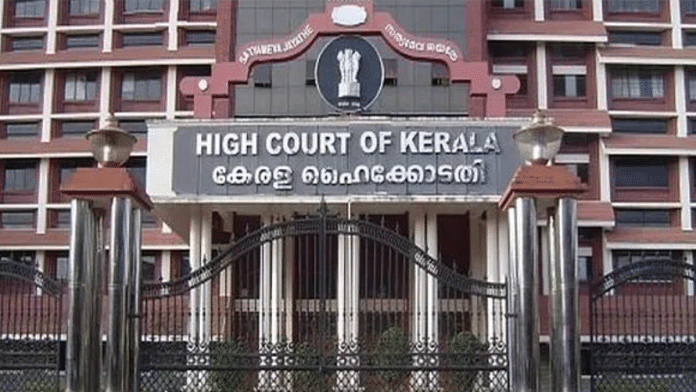New Delhi: In a landmark verdict, the Kerala High Court held Wednesday that a “customer” may face criminal charges for engaging in prostitution.
The single judge bench of Justice Bechu Kurian Thomas was hearing an appeal by a petitioner, identified only as Mathew in the court order, who had moved court claiming he can’t face criminal charges for soliciting sexual services in a brothel, after he was booked under the Immoral Traffic (Prevention) Act (ITP), 1956, for seeking the services of a sex worker at an Ayurvedic Hospital near the Ravipuram Temple in Ernakulum, Kerala.
“Sexual exploitation cannot be done singularly (by one person),” the court said, while holding that a client seeking the services of a sex worker was criminally liable under ITP Act.
Justice Thomas added that Section 7 of the Act included a “customer” or person who availed of the services offered at a brothel and was liable to be punished because the ITP Act intended to counter immoral trafficking.
Among other provisions, the ITP Act penalises “living on the earnings of prostitution (for a person over the age of eighteen years who does so knowingly)”, “seducing or soliciting for purpose of prostitution” and “procuring, inducing or taking (a person) for the sake of prostitution”.
Earlier this year, the Supreme Court passed an order recognising sex work as a “profession” and adding that sex workers were entitled to equal protection under law.
Also read: Banned in 1988, this ‘religious’ practice still forces Telangana’s Dalit women into sex slavery
Does not apply to customer vs Section 7 provisions
Advocate Santosh Babu, appearing for Mathew, claimed that even if the allegations against his client were true, he couldn’t be booked under section 7 of the ITP, as it did not include the word “customer”.
Opposing this, public prosecutor K.A. Noushad, appearing for the State of Kerala, submitted that since the act of prostitution was carried out with the petitioner, the allegations against him were covered under the ITP.
Section 7 of the ITP Act makes prostitution in certain places, such as places of worship and educational institutions, punishable under law. It applies to a person who “carries on” the act of prostitution and the person “with whom” it is carried on.
In support of his claim, Babu referred to an Andhra Pradesh High Court order from earlier this year, which had held that the ITP does not cover those visiting a brothel to seek the services of a sex worker.
‘Umbrella statute’, object to counter trafficking
The court held that Section 7 (1) of the ITP applies to both the person who “carries on’ prostitution and the “person with whom” such prostitution is carried out.
Justice Thomas said that the provision must be read in the context of the word prostitution, which means sexual exploitation or abuse for commercial purposes.
Such exploitation cannot be done by one person and the individual who engages in such exploitation is the one with whom such exploitation is carried out, the judge added.
“The person engaged in the act of exploitation is also a person who falls within the term ‘persons with whom such prostitution is carried on’,” the court said.
The bench rejected the judgments relied on by the petitioners and said that they did not consider the issue at hand before the court (because they dealt with different situations). Prostitution cannot be carried on without a “customer” and to achieve the object of the legislation, the customer must be covered by the provision, Justice Thomas said.
“In the absence of the customer falling within the penal umbrella of the statute, the objects of the enactment can never be achieved,” the order noted.
Akshat Jain is a student at the National Law University, Delhi, and an intern with ThePrint.
(Edited by V.S. Chandrasekar)
Also read: Delhi Police arrests four for duping people with gigolo, masseuse job offers



